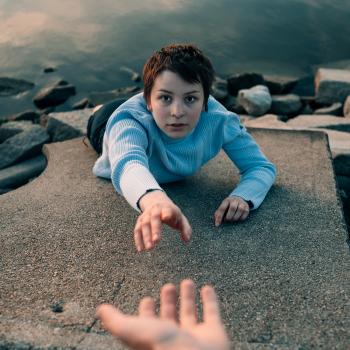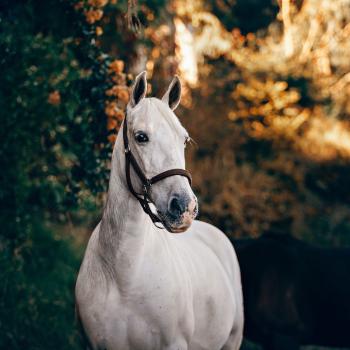When I came across the description of Amy Julia Becker’s White Picket Fences, two thoughts immediately struck my mind: (1) I have to read this book; and (2) I don’t want to read this book. Ignorance is bliss, am I right?
I read the book. Actually, I devoured the book. Becker unveiled things I didn’t want to see about myself and my upbringing, but she did so in a very non-assuming, humble, “I am with you in this” sort of way. She doesn’t judge. She doesn’t give a “how to” plan on how to fix it. But she does give some incredibly thought-provoking insight that at least gets a critical conversation started.
Below are 10 of the MANY highlights I made as I read through the book.
- My college education and white skin and financial security did nothing to prepare me for the news that our daughter had Down syndrome. If anything, those marks of my social position brought with them unacknowledged expectations that life would be easier for us. I had never realized how wealth and education and all the unspoken benefits that accompany whiteness stood as barriers against Penny’s diagnosis, walls that I thought protected me from vulnerability, from suffering, from discomfort, from fear, walls that kept me from understanding that life is both fragile and full of beauty in all its forms.
- The inability to recognize that value is a failure on my part—a failure of imagination and of vision. When I refuse to see myself as sharing my humanity with people with Down syndrome, with people whose bodies function differently than my own, with people of a different ethnicity or skin color or socioeconomic status, I cut myself off from seeing my own need. As I weave a web of invulnerability, I cut myself off from allowing others to love me. The logic of self-sufficiency is a logic of loneliness. (Bold mine)
- My friend Sonja once told me that “the good old days†sounded like code for exclusion to her, an African American woman from Louisiana. Those words had always sounded like nostalgia for something beautiful until I started to view my childhood through a different lens.
- Scholar Hannah Arendt coined the phrase “the banality of evilâ€[26] to describe the way evil functions—not as overt horror but as small cowardly actions in keeping with the status quo.
- But as much as white America (myself included) likes the narrative of white saviors, I am only too aware that white people do not have all the answers and our sometimes misguided desire to help others (and feel good about ourselves) can do harm in the process. I think of the public example of Facebook CEO Mark Zuckerberg, whose one-hundred-million-dollar gift to improve the Newark public school system failed to achieve significant gains for the children in those schools.[28] Or I think of those same friends in Richmond, who regularly worry about the unintended negative consequences their presence has had in their neighborhood. Even with impeccable motives to help right the wrongs of systemic racism and historic injustice, moving outside this wall of privilege is not an easy solution, nor is it necessarily beneficial for the people ostensibly helped by the move.
- Perhaps the reason knocking down the wall of privilege is so hard for me to envision is because it would require more sacrifice than I am willing to bear.
- It is as if those of us with wealth try to deny something core to who we are as human beings. Whether we like it or not, we are needy, and no amount of money will ever change this fact. When we try to outsource our neediness, we strip ourselves of the gift of relationships built on trust and hardship and care for one another. Perhaps it is that unwillingness to admit and face our human neediness that leads to a sense of deprivation among the affluent. Perhaps it is that unwillingness that leads to my third glass of wine.
- The insidious irony is that in insulating us from the wounds of the world, privilege can make us become focused upon the wounds of our psyches and neglect the needs of our souls. Privilege allowed me to turn inward. I stayed focused on myself, and I stayed miserable. When I look at the data about depression, anxiety, substance abuse, and isolation among the affluent youth and adults today, it seems I’m not alone. Wealth does bring happiness up to a point. We need basic material security. But people with no worries about their material needs have the luxury of becoming self-centered, which often means becoming self-destructive.
- The privilege of whiteness and wealth can become a wall against the privilege of being human, loved not for status or performance but simply loved, and able to give love in return not because of obligation but in grateful response to an invitation. I have been given much that I do not deserve, and my very real social privilege has cut me off from others as much as it has also made my life comfortable. But social privilege is not the end of my story. The real privilege of my life has come in learning what it means to love others, that love involves suffering and sacrifice and sleepless nights and tears and heartache and great gifts.
- I now understand two things about privilege that I didn’t understand before. One, that privilege in and of itself is not a sign of God’s blessing but rather a fact of my life that can be used for good or for ill. Two, that what our culture calls privilege is a mirage, a false understanding of what it means to live a good life, and that the true privilege of my existence comes in the undeserved favor I have in being one who is loved by God, loved by others, and able to love in return.















